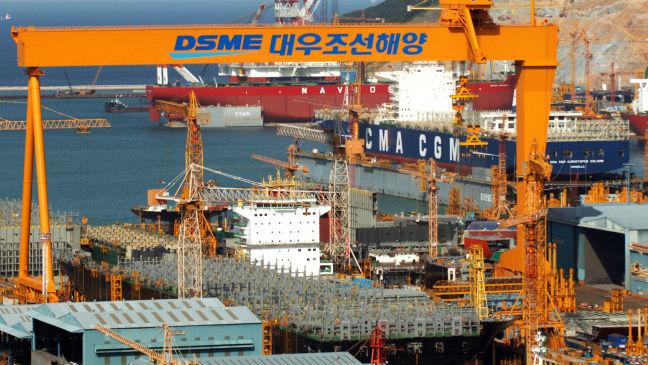DSME Posts $4 Billion Loss for 2015

Daewoo Shipbuilding & Marine Engineering, the world's second largest shipbuilder, posted a $4 billion loss for FY2015 in results released Monday, a reflection of the dire state of the Korean shipbuilding industry.
State-run Korea Development Bank said earlier in the year that there would be no further bailouts for DSME. KDB and other creditors poured $4 billion into the shipbuilder's operations in October, a move that sparked formal complaints from the yard's European and Japanese competitors, who alleged that the state support amounted to an unfair subsidy.
Competitor Samsung posted a $1 billion loss for FY2015 in an announcement earlier this year.
The big three South Korean shipbuilders – Samsung, Hyundai and Daewoo – posted no orders in January, signalling trouble ahead. All three said that they would cut their sales targets for 2016, and all three have been carrying out cost-cutting measures, including a combined 10,000 positions in layoffs announced in November. DSME also carried out the sale of six ailing subsidiaries in May of last year, shedding some of its loss-making units, including Daewoo Mangalia Heavy Industries, Daewoo Shandong Shipbuilding Co., Dewind, DSME Trenton, DSME Construction and FLC. Hyundai recently announced that it would close its rig construction yard at Onsan due to a lack of orders.
Still, despite tough times for South Korean yards, DSME has a backlog of nearly 150 vessels and semi-submersibles, worth a combined $42 billion, according to its February 2016 investor relations report – suggesting that it will have an income stream for some time.
The money may be slow in coming, however, as rig operators and others seek to delay final payments on their newbuilds by pushing back delivery dates. DSME deferred two drillships for Atwood Oceanics in December and another two for Seadrill in January. The Seadrill units, worth final payments of $800 between them, would have been delivered in the second quarter, but have been pushed back until 2018 and 2019.
